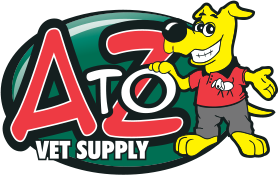Horses and Intestinal Parasites

When it comes to intestinal parasites in your horse, you may have a ton of questions: What dewormer should I use? When should I worm my horse? What types of worms should I look out for?
Should you be concerned about internal parasites? What can they do to your horse?
Intestinal parasites are most definitely a concern for horse owners. Parasites can cause weight loss, damage to vital organs, growth hindrance, inability to perform, and can even cause colic. With the proper rotation of wormers and some other helpful tips, you can manage intestinal parasites in your horse easily.
What kind of internal parasites are a threat?
There are many types of worms and parasites that can be housed in your horses’ intestines. Tapeworms, bots, threadworms, small strongyles, large strongyles, roundworms, and pinworms are some parasites you should watch out for.
When should you worm your horse?
We recommend worming in the spring and fall when the level of parasites in your horse can be at its highest peak of the year. As far as bots and tapeworms, you should coordinate treatment with the end of the pasture season for tapeworms and the end of the fly season for bots, which is normally early winter or late fall. To control these parasites, we recommend an ivermectin/praziquantel wormer (such as Quest Plus or Zimecterin Gold) or moxidectin/praziquantel (like Quest Paste) wormer.
How often should your horse be wormed?
The best recommendation would be to complete a fecal egg count (FEC) test, which helps you determine how often to deworm your horse. You should perform at least one fecal egg count test a year for your adult horses. The most effective course is deworming your horse once to twice per year, normally during the spring and fall.
Other tips for prevention
Some other tips and recommendations can also help cut down on the number of intestinal parasites in your horse’s body. For example, you can use a mounted hay rack or feeder to keep your horse from ingesting some parasites. You can also help by removing the manure in your horse’s stall and their pasture where they graze. One very key point is also pasture rotation! Rotating which pasture your horses are grazing in helps with more than just intestinal parasites. You might also try rotating the species that you graze on pasture, such as from horses to cattle, or to goats.
While intestinal parasites are a constant problem for horse owners, we here at A to Z Vet Supply strive to make it easier on you by providing you with everything you need to eliminate intestinal parasites.





